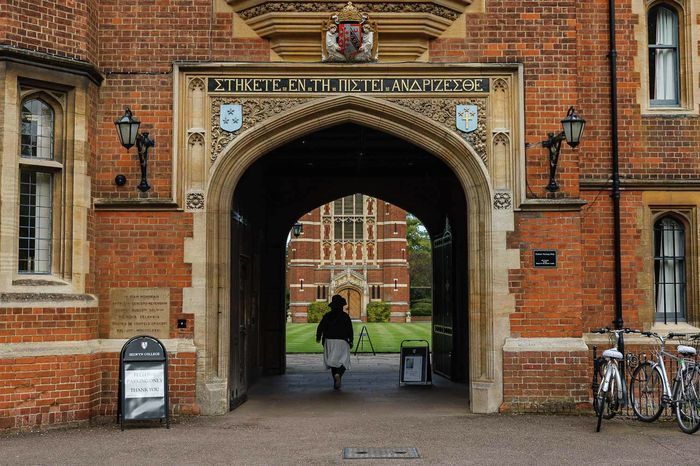Cambridge students disrupt ‘the Oscars of Oil’
Students protested the London gathering of fossil fuel executives, with one going undercover at the conference

Cambridge students, including an undercover activist, joined the ‘Oily Money Out’ protests directed at London’s Energy Intelligence Forum (EIF), nicknamed ‘the Oscars of Oil’.
Cambridge activists claimed that they delayed a talk from the CEO of Shell by several hours, eventually forcing the address to be delivered over Zoom.
Having run since 1980, the ′Oil and Money Conference’ was rebranded in 2020 as the ′Energy Intelligence Forum’.
The conference included speakers from oil companies such as BP, Shell, and Saudi Aramco, as well as Government representatives.
One student, who wishes to remain anonymous, told Varsity of her experience “infiltrating the hotel disguised as a wealthy hotel-goer” to gather intelligence to determine the “most successful strategy for disruption.”
The conference took place just weeks ahead of COP28, and hosted Sultan Ahmed Al-Jaber, who holds the presidency of the UN climate talks in Dubai. Sultan Al-Jaber’s appointment has been scrutinised, given his role as chief executive of the UAE’s national oil company.
The ‘Oily Money Out’ week of protest, sparked by the conference, gathered hundreds of climate activists including Greta Thunberg, who was arrested by the Metropolitan police outside the EIF.
There were over 30 actions across London, including blockades of the conference entrance, and chants in condemnation of the event, previously called the Oil & Money Conference.
Camouflaged among the conference attendees and hotel guests, the Cambridge student obtained information regarding the best time and tactics to disrupt the conference from the inside, they told Varsity.
The activist drew attention to the presence of major actors in the controversial Rosebank oil field, which was recently approved by the Government. The CEO of Equinor, the company behind the development which goes against scientific recommendations of no new oil and gas, was a speaker at the event.
“[It’s] shocking what borrowed clothes and a confident walk can do in a society that worships material wealth,” the student remarked.
The student highlighted that her “internal disruption was just a small part of the massively successful campaign organised by Fossil Free London and partners to make the city inhospitable to the fossil fuel industry and its financiers.”
Several other Cambridge activists took part in the week of protest. Students expressed their strong disapproval of the role of the university’s “complicit[y]” in the fossil fuel industry, as Cambridge receives “funding from oil companies and maintain[s] climate-ignorant curricula”.
Students emphasised that the University of Cambridge is at the forefront of climate research and, thus must take a more active role in mobilising the outcomes of its research.
The protestors claimed success, with a student telling Varsity that they “prevented fossil fuels executives and government officials from entering the conference until nearly 1:30 p.m., though it was meant to begin at 9 a.m.,” which “forced the CEO of Shell to give his address on Zoom.”
One student-activist summarised the impact of the protests: “The [final] day really demonstrated the power of collective action – together we are stronger, and together we will kick oily money out.”
 News / Uni partners with controversial Hong Kong university2 April 2025
News / Uni partners with controversial Hong Kong university2 April 2025 News / Hundreds of jobs to be cut at Cambridge University Hospitals1 April 2025
News / Hundreds of jobs to be cut at Cambridge University Hospitals1 April 2025 Comment / More Cambridge students should study abroad 1 April 2025
Comment / More Cambridge students should study abroad 1 April 2025 News / Caius clock hand returned nearly 100 years after student prank31 March 2025
News / Caius clock hand returned nearly 100 years after student prank31 March 2025 Lifestyle / A Goodchild’s Cambridge Confessional: Volume 23 April 2025
Lifestyle / A Goodchild’s Cambridge Confessional: Volume 23 April 2025



